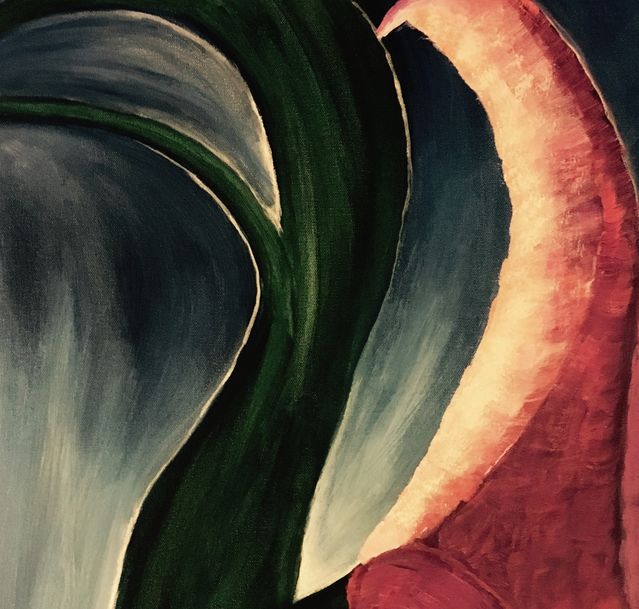Post-Traumatic Stress Disorder
PSTD Can Hit Women With Breast Cancer Years After Diagnosis
Early support may reduce incidence; losing it may worsen symptoms
Posted November 20, 2017

Post-traumatic stress disorder (PTSD) may be one aftereffect of cancer, according to research published in the journal Cancer. And women with breast cancer were less likely to get PTSD initially, but more likely to have symptoms that actually worsen over time.
While PTSD is usually a response to a traumatic event such as a serious accident or natural disaster, it can also occur in patients diagnosed with cancer, says Mei Hsien Chan, PhD, of the National University of Malaysia. Chan and her colleagues studied 469 adults within one month of a cancer diagnosis, then tested them again after six months and after four years.
The results:
• 21.7% were diagnosed with PTSD at six months
• 6.1% continued to have symptoms at 4-years.
• Patients with breast cancer were 3.7 times less likely to develop PTSD at six months, but more likely to have it at four years, with worse symptoms.
Chan suggests that this could be because the breast cancer patients in the study had a solid network of healthcare professionals supporting them for the year after their diagnosis, but the farther away they got from initial treatment, the more they were on their own.
This is fairly typical of breast cancer treatment—you’re the center of the medical universe for a while, and then, bit by bit, that universe goes away. As a breast cancer patient, I was fine with this, I thought. Now I wonder.
I have been blessed with breast cancer twice. My memory is that I sailed through the first case, learning and educating others, writing a book, living a healthier life afterward. The second case, nine years after the first, threw me. I was supposed to be the expert, the healthy one, the woman who was a model of stamina and strength and resilience. The woman who got over cancer, not the woman who got it again.
Well, I was the woman who got it again. And it came at an especially stressful time for me: We were trying to recover from a forest fire in out beautiful mountain valley. At the time, we were mostly dealing with aftereffects that terrified me much more than the initial fire: a flood within feet of our cabin and a bear that tried to break in. The cancer was, I believe, an end product of all this stress. But with it, and with the other chaos, came a healthy case of PTSD.
Typical symptoms include flashbacks, recurring dreams, nightmares, severe emotional reaction to anything that reminds you of the initial event, and constant worry.
I tried to overlook the PTSD. I was stronger than that. But I wasn't. But I also didn't think I fit the mold. PTSD happens to soldiers and people who survive events like 9/11. Not me.
The bear and the flood came in the nighttime and I could not sleep without pills, earplugs, and white noise to block out my mental terrors. If I heard even a tiny noise outside at night, my heart began to race and my breathing shortened to gasps. At first I thought it was a heart attack, but I eventually realized it was a panic attack. When it continued, I talked with a therapist, who said this was pretty classic PTSD.
Ironically, I recognized the symptoms from one blip in my "perfect" response to my first cancer. After my third chemo treatment, I suddenly couldn't breathe, I felt clammy, my heart was thumping so loud I swore the neighbors could hear it. My husband and I raced to the doctor’s office and the oncologist on call dismissed it as “just a panic attack.” I was angered with his shrugging off my problem, but more annoyed with me for having it in the first place. I have no idea what triggered it, other than the fact that I had a serious illness and was ingesting toxins to treat it.
Now, as it turns out, I am far from alone, and the cancer diagnosis might have been more a factor than I thought.
“Many cancer patients believe they need to adopt a ‘warrior mentality’ and remain positive and optimistic from diagnosis through treatment to stand a better chance of beating their cancer,” Chan says.
That’s me and the thousands of the women with cancer I have met. We use warrior language: we fight this beast; we’re in a battle with cancer; if we survive, we’ve won. Give in to cancer and its fears? Never.
But this mentality masks our biggest fear—of recurrence. That is why the second cancer was so much harder. I wasn't being paranoid. There really was a disease stalking me. I had just begun to believe I was done with cancer. In fact, I signed off my cancer blog, writing that I’d had my say and that I would leave the blog itself up because of all the information it contained, but I would no longer post.
Well, cancer was not done with me, so one of the first posts after that “retirement” announcement was a notice that I’d been diagnosed again—just five months after I'd formally announced I was done with the stuff. But, of course, I wrote in the most positive of terms. I was still a happy warrior. In fact, I titled the piece, "The Odds Are Overwhelmingly In My Favor."
As I write this, I feel myself tense, my breath a bit more labored. Still.
“We need psychological evaluation and support services for patients with cancer at an initial stage and at continued follows-up because psychological wellbeing and mental health—and by extension, quality of life—are just as important as physical health,” Chan says.
The fears of recurrence don't go away, but our support does. And how should that support look? Breast cancer patients don't all need the same thing nor respond to the same treatment.
After my first diagnosis, in 2006, I went online and found chat rooms full of women with breast cancer. But the longer I was plugged in, the more stressed I got. I learned about new fears, threats I hadn’t thought about before, concerns that had not been mine until somebody else expressed them. So I swore off chat rooms. Yet other women find them lifesavers; they’ve met lifelong virtual friends who help provide perspective, focus, and hope.
I don't much like talking to therapists about my problems—I am big on solving issues for others. Writing my book and blog were therapeutic to me, as was meeting wonderful women who wrote and called me and provided humor and smarts and niceness to my life. But then some of those women got sick again, and several of them died. And that was one big reason I stopped blogging. There were just too many ways in which I could not help. I felt a bit over my head.
And then I got cancer again. And then PTSD. Now, I wonder if my unique approach to stress control—writing about it—helped keep me healthy in body and mind. Research suggests that’s true, that writing about your emotions can improve them. So I am back to blogging. One day, maybe I will sleep without fear again. We’ll see.
READ MORE ABOUT CANCER AND MENTAL HEALTH:
Music Therapy Soothes Breast Cancer Patients: Pump up the Mozart and dial down the pain.
Ready to Dive Into the Future After Cancer Treatment? Why not slow down and wade into the kiddie pool first? It could be fun.
Improve Your Mood After A Cancer Diagnosis. How? Work with your partner to change your conversation.
References
“Course and Predictors of Post-Traumatic Stress Disorder in a Cohort of Psychologically Distressed Patients with Cancer: A 4-Year Follow-Up Study.” Caryn Mei Hsien Chan, Chong Guan Ng, Aishah Taib, Lei Hum Wee, Edward Krupat, and Fremonta Meyer. CANCER; Published Online: November 20, 2017 (DOI: 10.1002/cncr.30980).




